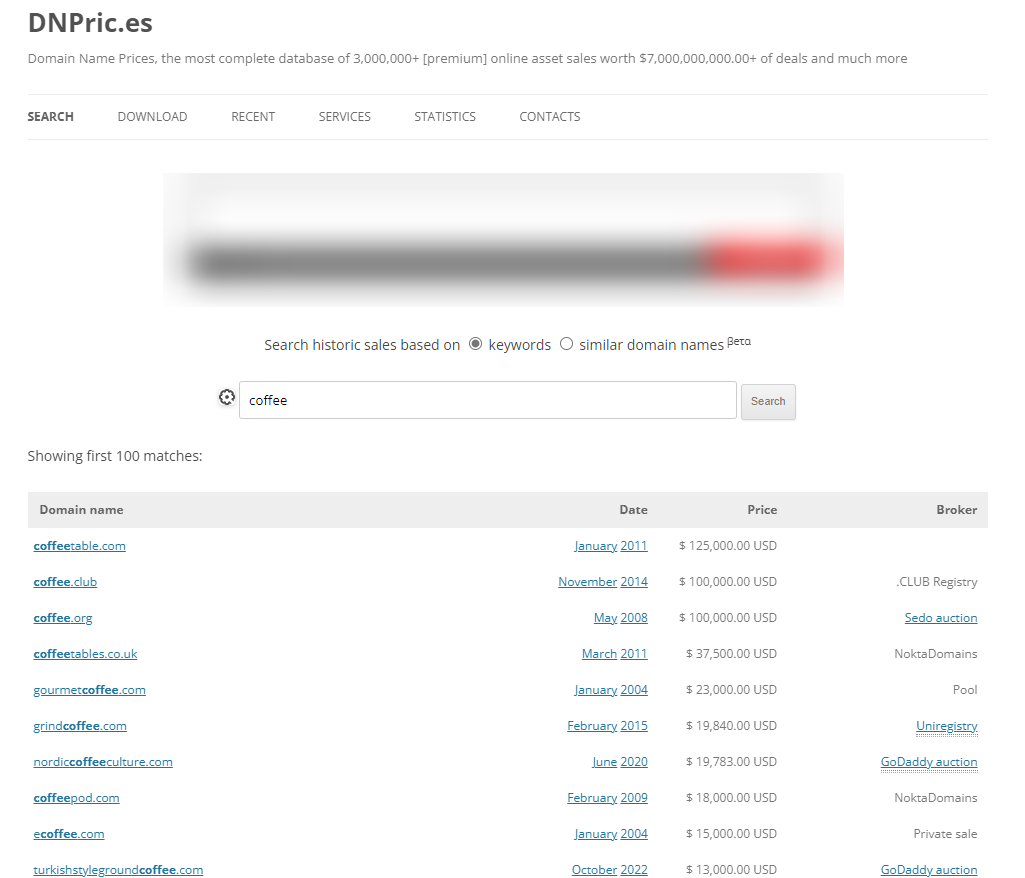If you want to launch a new website, you should make sure that you are using the right domain name. You will find online guides how to choose a good domain, but what if the one you want has been registered in the past? The history of a domain name and the website that domain opened may affect your own website in one way or another. This is why, it is a good idea to check the history of the domain name you want to buy.
This is valid both if you want to buy an existing domain name, and if you want to get one that is currently available as it may have been used by somebody else in the past, before it got deleted. In this article, we will look at the reasons why you may need to look at the history of a domain name, the different aspects behind that term, as well as a few tools you can use in your research.
Do you really need to check a domain’s history?
The short answer is – yes. You can find a lot of useful information if you check the history of a domain name. Here are a few reasons for that:
- Register a clean domain name. Unless you do some research, you cannot be sure that the domain has not been used for malicious purposes – spam, scam, etc. Such domains are often suspended and deleted, which makes it possible to register a domain with bad history and links from shady websites. If the domain was added to a blacklist at some point in time, it may still be there, which can affect your own website if you use the same domain name.
- Buy a good existing domain name. If you are buying an existing domain name, the same thing applies – you have to make sure that it doesn’t have any bad history/links. If you dig deeper, you can see how many times the domain has been sold in the past, what content it has opened through the years, how popular it is, etc. You can discover information about current and past owners, if such information is relevant for the purchase in some way.
- Use SEO-ready domain. If you want to buy an existing domain name for a new project, you may need one that is SEO-ready. In other words, it may have good standing with search engines, valuable backlinks, etc. With such a domain, your project will get off to a flying start.
- Check your competition. You can build your online strategy depending on what you discover about your competitors. Check what content they have had and how they have changed it through the years; find out if they have bought a popular domain or they have registered a new one; discover if there was anything peculiar about the domain that has contributed to their success.
- Protect your brand name. Researching the history of a domain name does not necessarily have to be connected to your own website. You can check domains that include or are similar to your brand name, so you can see who owns them and if they were registered in bad faith, or the similarity is just a coincidence, especially if they have been registered for a while.
- Protect your domain name. In the unfortunate event of your domain getting stolen, you can prove that it was yours and get it back faster and easier if you know how to check and show the authorities and dispute resolution organizations that you were listed as the domain owner and the domain opened your website through the years.
How to check a domain’s history
There are different historical records you can check for a domain name. Each one will give you different information, which can be useful in one way or another. Let’s look at a few of the different aspects of a domain’s history. As you will notice, the information is not restricted solely to obtaining the names of current and past owners of a given domain.
WHOIS

The WHOIS information of a domain name includes the registration and expiration dates, registrar company, current status, Registrant/owner details, and the nameservers set for that domain name. Unless the owner information is hidden due to GDPR or a privacy protection service used by the registrant, you can see the owner information and get some idea who you will be dealing with and if the domain is in good standing.
While the above is valid for almost any existing domain name, some services allow you to check the historical WHOIS records for a domain. This includes registrant changes, registrar transfers, nameserver updates, etc. This way, you can easily see if an available domain has been registered in the past, or how an existing domain name has changed hands through the years.
This information used to be available for free in the past, but nowadays, the platforms that currently offer it charge a small fee. You can still see some details for free if you use services like https://whoisrequest.com/history/ where you can find all nameserver changes for a domain, or https://www.whoxy.com/ where you can see past owner records, including ones for domains that are currently GDPR-protected.

Another popular service for this type of information, which offers some free results, is http://domainiq.com/ . If you are looking for more detailed data, you can use a paid service such as https://research.domaintools.com/research/whois-history/. There, you can find detailed records of ownership changes, status code changes, historical screenshots, and more.

Wayback Machine
The Wayback Machine is a digital archive that keeps snapshots of millions of websites. The project is maintained by the Internet archive, a non-profit organization. If you are buying an existing domain name or the one you want to register has been used years ago, you can easily see the content it has opened through the years. This can give you an idea if there may have been problems with the domain or the content at some point. In turn, something like that can affect your new website in a negative way.
Of course, you may also see that the domain was opening a great website and you can only benefit from that as there will still be links from various sources to that domain. In any case, it is worth checking any website associated with your desired domain. After all, people who have used the old website may relate it to your new website.


Moz Domain Score
Moz is one of the most popular SEO-oriented companies out there. It offers a lot of tools, including free ones like Moz Domain Analysis. Among other things, the latter will give you a domain authority score and a spam score, which can give you information how the domain has been performing so far.
The domain authority score shows how likely it is for a given domain to appear in search engine result pages (SERPs). The higher the result, the more likely it is for this to happen. In other words, a high domain authority score means that you are looking at a good domain name.

The Spam Score shows the percentage of websites/domains similar to the one you want that have been banned or penalized by Google. In this case, the lower the score, the better. A low spam score means that you will be buying a domain that opens good content and is not associated with spam/scam activities. Of course, things are not really that simple, but among the 27 factors that contribute to the spam score, you will find things such as “TLD correlated with spam domains”, “Presence of Poison (spam) Words”, hyphens, vowels and consonants in the domain name, length of the domain and number of external links. These are all things that hint if a given domain name is a spam one.
Backlinks
The better the domain, the more quality links it will have. Backlinks can tell you if a given domain was popular and if its content was worth linking. If you find links from shady websites, maybe the domain is not worth buying as you will probably not get the type and volume of traffic you hope for. If you find out there are less backlinks to the domain, but they are from respected websites (informational or media websites, industry portals, etc.), then there is a good chance that you will get some quality traffic from the very beginning, even without spending time/money for that.
Here we will mention a platform called SEMrush, which you can use to discover a lot of SEO information about a domain name. Among other things, you can see a detailed report how many domains link to the one you want to buy, backlink types, categories of the referring domains, etc. Such information can be quite useful, especially if you are looking at a premium domain.

Purchase history
If you want to buy an existing domain name, you can check if it has already changed hands in the past. More importantly, you can see how much the domain name cost. You can use searchable databases of domain purchases such as http://dnpric.es/ or https://namebio.com/. There, you can see the purchase date, the amount, and the broker company, so you can get an idea how much the domain was worth through the years and you can see if past owners kept it for a while, or sold it quickly.


Search engines
This option may come as a surprise, but sometimes you can find useful information about a domain name or the site it opened in search engines. The domain may have been mentioned on discussion boards, domain marketplaces, review websites, etc. You can come across positive or negative comments, records of possible spam messages, or something else that can give you a hint about the history of that domain name.
Other resources
You may be able to find information about a domain name in other places as well. Social media (Facebook groups and reviews, Twitter comments by users), industry portals, and private discussion boards are a few examples of online resources, which may not be easily searchable, but they can give you valuable information about a domain name or its past owners.
In Conclusion
Researching the history of a domain name can give you invaluable information about that domain. Whether it is an existing one, or it is currently available for registration, but it has been used before, you can discover if it has changed hands through the years, if it has been used to spread spam/malware, what website it has opened in different points of time, and what backlinks it has generated.
You can use a number of online tools to check the above information, and most of them are available for free. We have listed a few tools in our article, but you may come across other ones that offer the same or similar functionality. Regardless of what tools you use, what matters is to find as much information as possible about the history of the domain name you would like to buy. This way, you can make an informed decision whether the domain is a good choice for your new project or not.







